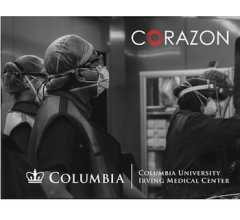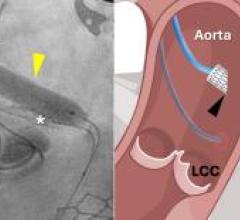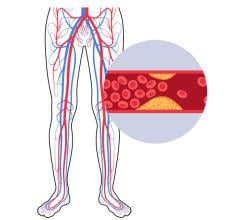November 16, 2011 — Non-adherence to antiplatelet therapy – which prevents blood clots following percutaneous coronary intervention (PCI) – was associated with higher rates of both ischemic and bleeding events at 30 days. Results of the PARIS registry were presented at the 23rd annual Transcatheter Cardiovascular Therapeutics (TCT) scientific symposium, sponsored by the Cardiovascular Research Foundation.
Dual antiplatelet therapy (DAPT) with aspirin and a thienopyridine is the cornerstone of treatment for patients presenting with acute coronary syndromes and for patients undergoing PCI with stents. Current guidelines recommend at least one year of DAPT for all patients following PCI with a drug-eluting stent (DES), and 30 days after a bare metal stent.
Premature discontinuation of DAPT (within the first six months after implantation of DES) has been associated with an increased risk of stent thrombosis. The optimal duration of DAPT has not yet been precisely determined, especially with regard to second generation stents.
The PARIS Registry (Patterns of Non-Adherence to Anti-Platelet Regimens In Stented Patients: An Observational Single Arm Study) is a multi-center, multinational, observational study with an “all comers” design. The study will follow 5,033 subjects for approximately 24 months post stent implantation (bare metal and drug-eluting stents).
The objectives of this study are to examine modes of non-adherence to DAPT in patients following stenting, and to evaluate subsequent clinical outcomes and their relation to non-adherence.
The incidence of non-adherence to DAPT in this “real world” international observational registry was 2 percent at 30-day follow-up.
In the non-adherent population at 30-days:
- 69 percent had disruption of therapy - mostly due to noncompliance (61 percent) and bleeding event (32 percent)
- 19 percent had interruption of DAPT - mostly due to surgery or medical procedures (67 percent)
- 12 percent had discontinuation of therapy (recommended by physician)
“Importantly, any non-adherence (aspirin or thienopyridine – non-adherence was equally distributed) was associated with higher rates of both ischemic and bleeding events at 30 days including death, myocardial infarction, definite and/or probable stent thrombosis, target vessel revascularization, and bleeding (BARC?3),” said Roxana Mehran, M.D., the co-principal investigator of the study. Mehran is professor of medicine at Mount Sinai School of Medicine and director of interventional cardiovascular research and clinical trials at the Zena and Michael A. Wiener Cardiovascular Institute. She also serves as chief scientific officer of the CRF Clinical Trials Center.
“There was a six-fold increase in odds for definite or probable stent thrombosis associated with non-adherence compared to adherence to DAPT at 30 days. The two year data will be more definitive and should be able to link the patterns of non-adherence with important clinical events,” Mehran said.
The PARIS trial is sponsored by Mount Sinai School of Medicine with grant support from Sanofi-Aventis and Bristol-Myers Squibb. Mehran reported no other financial support from the companies except for the research grant.
For more information: www.crf.org


 February 13, 2026
February 13, 2026 









